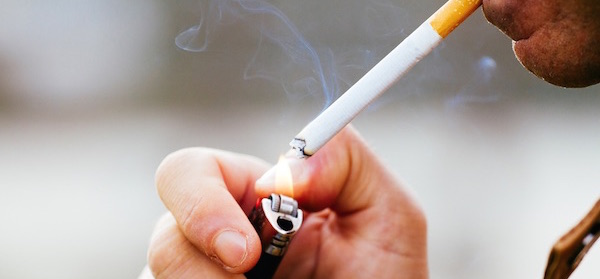So you’re a grown up and you don’t need anyone to tell you how bad smoking is for you? You’ve smoked for years and it’s impossible to give up? Or maybe it’s your only vice and you’re not going to quit for anyone? Whatever reason you use for not giving up smoking is your choice but the reality is that the habit is incredibly bad for your health. Still not convinced? Well, let’s start at the top and work our way down.
Brain
Receptors in the brain become used to the hit that nicotine brings and increase in number the more nicotine that is detected. The result is that if you don’t have your cigarette at the usual time, you will start to feel anxious and irritable and these feelings that will only cease once you smoke a cigarette.
Hearing
Due to a reduced oxygen supply to the cochlea caused by smoking, the cochlea can become damaged and this can result in mild to moderate hearing loss.
Eyes
Not only does smoking increase your chances of developing cataracts and macular degeneration, it also inhibits the production of rhodopsin, which helps you to see at night.
Skin
Smoking has a drying effect on your skin, which means that you are more likely to develop wrinkles at an earlier age, especially around your eyes and mouth.
Nose
Your sense of smell and therefore also your taste, will be affected by smoking. Sinus problems are also more likely due to the build up of mucus caused by smoking.
Mouth
Smokers tend to have more oral health issues, for example cavities, than non-smokers and even just the linger smell of smoke can lead to bad breath. Mouth sores and even cancer of the tongue and mouth are also more likely to affect smokers.
Throat
A dry throat and associated cough are signs that smoking is starting to affect the health of your throat. Throat infections become more commonplace and cancer of the throat is an added possibility.
Heart
By reducing the blood flow to your heart, smoking can raise your blood pressure as your heart has to pump harder. This stress can weaken your heart muscles and often leads to heart attacks or heart failure.
Smoking also makes your bloody thicker and stickier and, therefore, more difficult to pump around your body. Sticky blood is also more likely to result in clots, which can cause a stroke.
Cholesterol build up may also be linked to smoking and this can lead to poor blood flow resulting in amputation of fingers, toes and even limbs. Heart attacks and strokes are also more common in those with high cholesterol.
Lungs
Your lungs can become scarred from smoking, which means you’re more likely to wheeze and feel short of breath. Over the years this can lead to an accumulation of scar tissue and you may be left with a chronic cough and build up of mucus.
Alveoli are the tiny air sacs in our lungs that allow oxygen exchange. Smoking damages alveoli and can, over time, lead to the fatal condition of emphysema.
The tiny hairs that brush the impurities from your airways are known as cilia. Damage to cilia due to smoking means that more dirt and mucus can enter your airways, resulting in frequent chest infections and colds.
Kidneys
Smokers are more likely than non-smokers to develop Type 2 diabetes. This condition is also more difficult to control if the sufferer is a smoker. Diabetes can lead to kidney disease and amputation of limbs.
Sex and reproductive organs
In men, smoking can contribute to erectile dysfunction and lower sperm count. In women, it can be responsible for lower oestrogen levels, which, in turn, can make it more difficult to fall pregnant and cause an early menopause.
Blood
Smoking increases the white blood cell count as your body is constantly trying to fight off infection. While this may initially be considered a good thing, a prolonged high white blood cell count can increase the risk of heart attack, stroke and cancer.
Nicotine causes blood cells to tighten and this reduces the level of nutrients in the blood that help the body heal. Slower healing wounds also increase the chance of infection
Immune system
Cigarettes contain high levels of tar and chemicals, which make the immune system less effective, increasing the likelihood of sickness and reducing the body’s ability to overcome infections and diseases. If this weakening continues, autoimmune diseases, such as rheumatoid arthritis and multiple sclerosis, are also more likely.
Muscles
As smoking reduces the blood flow to your muscles, you’re more likely to experience a weakening of them and be more susceptible to injury.
Bones
The additives in cigarette smoke not only make the body less able to form new bone tissue, they also break down existing bone tissue. This means that smokers are more likely to suffer from broken bones and fractures and also take longer to heal from such breaks and fractures.
Related articles:
Health info that can save your life
Victoria’s smoking ban
Bad habits reduce life expectancy

